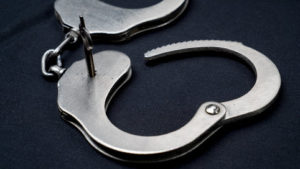Federal Gun Laws
There are both federal and state laws related to guns and gun owners are responsible for following all of them. There are pages and pages of gun laws, and if you have any specific questions you should contact a knowledgeable weapons offenses attorney.
Who Can Buy Firearms
The Federal Gun Control Act of 1968 prohibits some people from buying guns. More recent legislation has also added to the list of those who are not able to legally purchase firearms. The list of people who cannot buy guns includes anyone who:
- Is not underage.
- Is addicted or illegally uses controlled substances.
- Is in the United States illegally.
- Has been involuntarily committed to a psychiatric facility.
- Is currently under indictment for or has been convicted of a crime which is punishable by more than one year in prison, regardless of the penalty the person actually got.
- Is on the run or in hiding to avoid prosecution for a crime.
- Was discharged from the armed forces dishonorably.
- Has been convicted of domestic violence.
- Has a restraining order against them due to a credible threat of domestic violence and they had a chance to be present at the hearing where the order of protection was granted.
- Has been “adjudicated as a mental defective”.
- Has renounced their United States citizenship.
Other Federal Gun Laws
The federal government has also made some other laws regarding guns, but there are many areas of firearm legislation that they leave to the individual states, such as licensing of gun owners.
- While federal law allows individuals who can lawfully possess guns to transport them to and from places where the gun can lawfully be used, it must be stored unloaded and neither the gun nor ammunition can be accessible from the passenger compartment.
- The Gun-Free School Zone Act outlaws possession or discharge of guns on the grounds of or within 1,000 feet of a school. However, there are also many exceptions in the law.
- Federal law requires any guns imported into the country to be suited for “sporting purposes” as defined by the Attorney General. Though that is not a requirement for domestically produced guns.
- Federal law also requires that federally licensed dealers of firearms perform background checks on prospective gun buyers. They are also required to keep records of sales and make those available to law enforcement officers. There are also requirements to report loss or theft of guns and to report certain sales to the federal government. However, this only applies to commercial operations and not to hobby or occasional sellers who do not need to be federally licensed.
- The Protection of Lawful Commerce in Arms Act prohibits civil liability actions against gun sellers, manufacturers, and trade associations, though there are many exceptions to this rule.
Do You Have Questions? Contact Leesburg, Virginia Weapons Offenses Attorneys Today
If you are charged with a weapons offense, or have any questions about federal or state firearm laws, you should contact a skilled weapons offenses attorney. Our experienced weapons offenses attorneys at Simms Showers, LLP represent clients in Leesburg, Loudoun County and Fairfax County and can help defend you against the charges.
Resource:
atf.gov/resource-center/docs/atf-p-5300-4pdf/download

